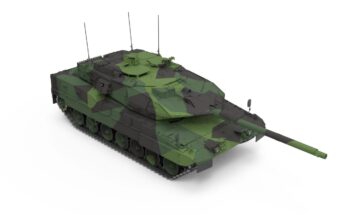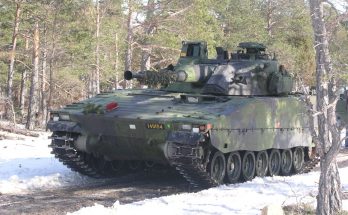Russia anticipates completing the delivery of BMP-3 infantry fighting vehicles to Azerbaijan next year.
Citing a military source, Tass News Agency reported that the BMP-3 deliveries would finish next year.
Tass quoted the source as saying, “The deliveries are to be completed in 2018.” The source did not add any further details, such as how many vehicles were due to be delivered or what the timeframe would be.
In 2010, Azerbaijan purchased BMP-3s, T-90s main battle tanks, artillery, and multiple rocket launchers in a deal that likely cost as much as $1 billion. Some deliveries were reportedly delayed over financial issues.
A significant amount of Baku’s budget revenues come from energy exports and the collapse of energy prices beginning in 2014 has negatively impacted the national budget and forced some defense cuts.
In June, Azerbaijan took delivery of a batch of Khrizantema-S anti-tank vehicles. The systems are based on BMP-3 chassis.
Separately, Tass News Agency reported that discussions between Russia and Belarus over the sale of 32 BTR-82As are ongoing. The two sides signed an implementation agreement in 2015 and had anticipated deliveries occurring the next year.
Maria Vorobyova, the press secretary of the Russian Federal Service for Military-Technical Cooperation, told Tass News Agency, “Talks go on with the Belarus party over implementation of a document signed in 2015.”
It is unclear what the financial cost of the deal is.
A source suggested to Tass that the delay in implementation stems from a failure on the part of Belarus to provide the first payments.
“The Russian side has received no advance payment and no official notifications have been provided by the Belarussian side on the issue,” the source said, according to Tass.
Military markets analyst, covering Eurasia, Middle East, and Africa.




